第74章
"No,Sir,(said he,)not highly gratified;yet I do not recollect to have passed many evenings with fewer objections."'Though of no high extraction himself,he had much respect for birth and family,especially among ladies.He said,"adventitious accomplishments may be possessed by all ranks;but one may easily distinguish the born gentlewoman."'Speaking of Burke,he said,"It was commonly observed,he spoke too often in parliament;but nobody could say he did not speak well,though too frequently and too familiarly."'We dined tete a tete at the Mitre,as I was preparing to return to Ireland,after an absence of many years.I regretted much leaving London,where I had formed many agreeable connexions:"Sir,(said he,)I don't wonder at it;no man,fond of letters,leaves London without regret.But remember,Sir,you have seen and enjoyed a great deal;--you have seen life in its highest decorations,and the world has nothing new to exhibit.No man is so well qualifyed to leave publick life as he who has long tried it and known it well.We are always hankering after untried situations and imagining greater felicity from them than they can afford.No,Sir,knowledge and virtue may be acquired in all countries,and your local consequence will make you some amends for the intellectual gratifications you relinquish."'He then took a most affecting leave of me;said,he knew,it was a point of DUTY that called me away."We shall all be sorry to lose you,"said he:"laudo tamen."'
1771,AETAT.62.]--
'To SIR JOSHUA REYNOLDS,IN LEICESTER-FIELDS.
'DEAR SIR,--When I came to Lichfield,I found that my portrait had been much visited,and much admired.Every man has a lurking wish to appear considerable in his native place;and I was pleased with the dignity conferred by such a testimony of your regard.
'Be pleased,therefore,to accept the thanks of,Sir,your most obliged and most humble servant,'Ashbourn in Derbyshire,'SAM.JOHNSON.
July 17,1771.'
'Compliments to Miss Reynolds.'
In his religious record of this year,we observe that he was better than usual,both in body and mind,and better satisfied with the regularity of his conduct.But he is still 'trying his ways'too rigorously.He charges himself with not rising early enough;yet he mentions what was surely a sufficient excuse for this,supposing it to be a duty seriously required,as he all his life appears to have thought it.'One great hindrance is want of rest;my nocturnal complaints grow less troublesome towards morning;and Iam tempted to repair the deficiencies of the night.'Alas!how hard would it be if this indulgence were to be imputed to a sick man as a crime.In his retrospect on the following Easter-Eve,he says,'When I review the last year,I am able to recollect so little done,that shame and sorrow,though perhaps too weakly,come upon me.'
In 1772he was altogether quiescent as an authour;but it will be found from the various evidences which I shall bring together that his mind was acute,lively,and vigorous.
'TO JAMES BOSWELL,ESQ.
'DEAR SIR,--That you are coming so soon to town I am very glad;and still more glad that you are coming as an advocate.I think nothing more likely to make your life pass happily away,than that consciousness of your own value,which eminence in your profession will certainly confer.If I can give you any collateral help,Ihope you do not suspect that it will be wanting.My kindness for you has neither the merit of singular virtue,nor the reproach of singular prejudice.Whether to love you be right or wrong,I have many on my side:Mrs.Thrale loves you,and Mrs.Williams loves you,and what would have inclined me to love you,if I had been neutral before,you are a great favourite of Dr.Beattie.'Of Dr.Beattie I should have thought much,but that his lady puts him out of my head;she is a very lovely woman.
'The ejection which you come hither to oppose,appears very cruel,unreasonable,and oppressive.I should think there could not be much doubt of your success.
'My health grows better,yet I am not fully recovered.I believe it is held,that men do not recover very fast after threescore.Ihope yet to see Beattie's College:and have not given up the western voyage.But however all this may be or not,let us try to make each other happy when we meet,and not refer our pleasure to distant times or distant places.
'How comes it that you tell me nothing of your lady?I hope to see her some time,and till then shall be glad to hear of her.I am,dear Sir,&c.
'March 15,1772.'
'SAM.JOHNSON.'
Boswell had given Beattie a letter of introduction to Johnson the preceding summer--ED.
On the 21st of March,I was happy to find myself again in my friend's study,and was glad to see my old acquaintance,Mr.
Francis Barber,who was now returned home.Dr.Johnson received me with a hearty welcome;saying,'I am glad you are come.'
I thanked him for showing civilities to Beattie.'Sir,(said he,)I should thank YOU.We all love Beattie.Mrs.Thrale says,if ever she has another husband,she'll have Beattie.He sunk upon us that he was married;else we should have shewn his lady more civilities.She is a very fine woman.But how can you shew civilities to a nonentity?I did not think he had been married.
Nay,I did not think about it one way or other;but he did not tell us of his lady till late.'